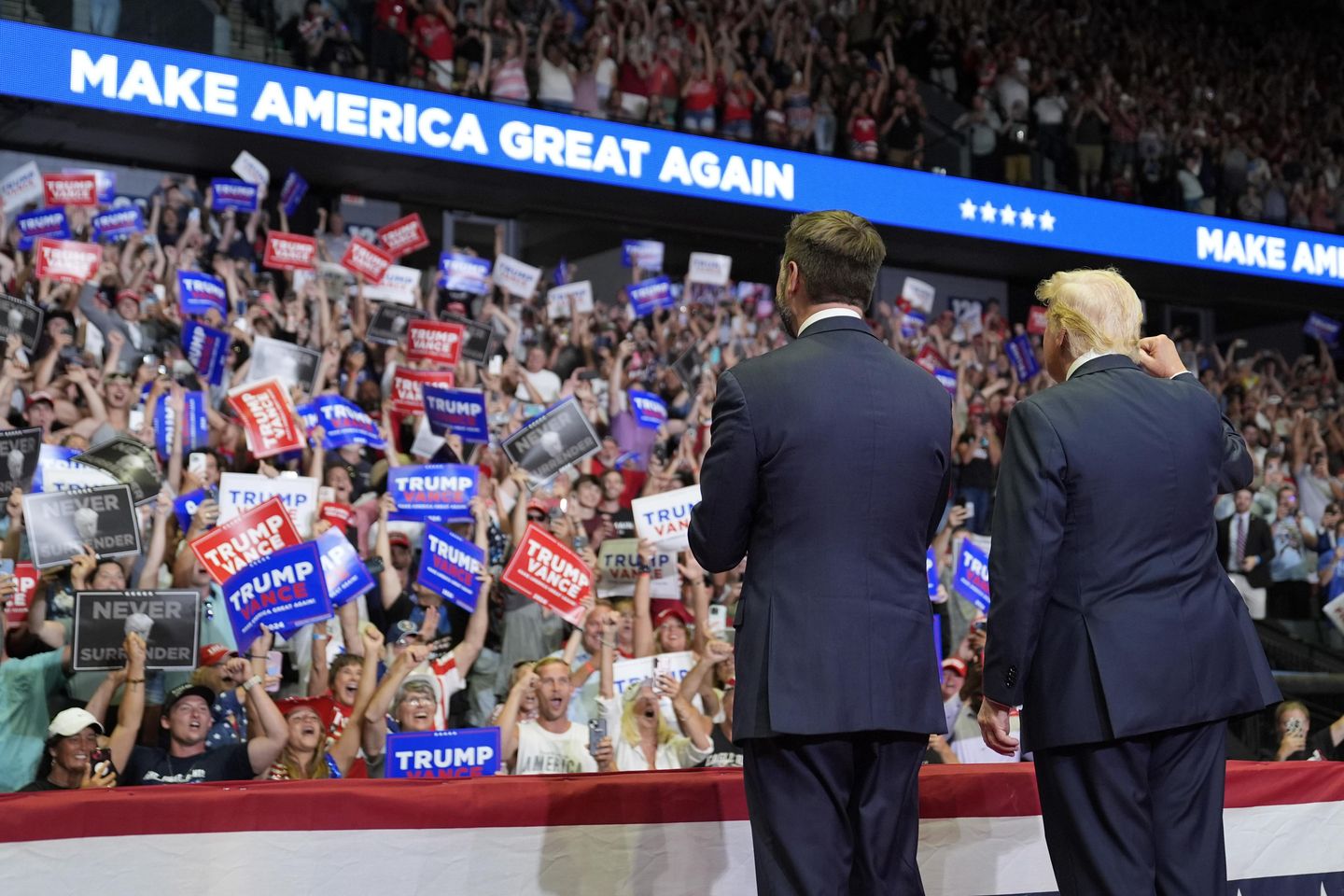Former President Trump’s running mate, Sen. J.D. Vance, made a controversial statement on Sunday, claiming that Trump’s occasional praise of authoritarian leaders like Russian President Vladimir Putin and Chinese President Xi Jinping actually makes him “more effective diplomatically.” This assertion has sparked a debate among political analysts and lawmakers, with many questioning the implications of such rhetoric on America’s foreign policy and democratic values.
Vance’s remarks came during a press conference where he defended Trump’s approach to foreign relations, particularly his interactions with leaders known for their autocratic tendencies. The Ohio Senator argued that by praising these authoritarian figures, Trump is able to establish a rapport and negotiate more effectively with them, ultimately benefiting the United States in diplomatic negotiations.
While some may see this as a pragmatic approach to international relations, others have raised concerns about the moral and ethical implications of cozying up to leaders who have been criticized for their human rights abuses and suppression of dissent. Putin, in particular, has faced international condemnation for his government’s crackdown on political opposition and independent media, as well as its military interventions in Ukraine and Syria. Similarly, Xi Jinping’s administration has been accused of violating human rights in Xinjiang, cracking down on pro-democracy activists in Hong Kong, and exerting authoritarian control over Chinese society.
Critics argue that by praising these leaders, Trump sends a troubling message about America’s commitment to human rights and democracy, potentially undermining efforts to promote these values on the global stage. They also point out that cozying up to autocrats could embolden them to continue their repressive policies with impunity, knowing that they have the tacit approval of the United States.
On the other hand, supporters of Trump’s approach argue that diplomacy often requires engaging with unsavory actors in order to advance national interests. They point to historical examples of U.S. presidents engaging with authoritarian regimes, such as President Richard Nixon’s opening to China in the 1970s, as evidence that pragmatism can sometimes trump idealism in foreign policy.
Moreover, Vance and other Trump allies contend that the former President’s unconventional style of diplomacy has yielded results in terms of securing concessions from countries like Russia and China. They point to Trump’s meetings with Putin and Xi, which they claim have led to agreements on issues like trade, arms control, and regional security.
However, critics remain skeptical of these claims, arguing that Trump’s praise of authoritarian leaders may have more to do with his personal admiration for strongman politics than any strategic calculation. They also question whether Trump’s approach has actually advanced America’s interests or if it has merely served to bolster the image of authoritarian regimes on the world stage.
The debate over Trump’s diplomacy with authoritarian leaders reflects broader divisions within the Republican Party and the U.S. political landscape more generally. While some conservatives applaud Trump’s willingness to challenge conventional diplomatic norms and engage with adversaries, others worry that his approach undermines America’s credibility as a champion of democracy and human rights.
As the 2024 election approaches, these debates are likely to intensify, with candidates from both parties staking out positions on America’s role in the world and the values it should uphold in its foreign policy. It remains to be seen whether Trump’s praise of authoritarian leaders will be a liability or an asset in the eyes of voters, but one thing is clear: the debate over America’s approach to diplomacy in the 21st century is far from settled.









